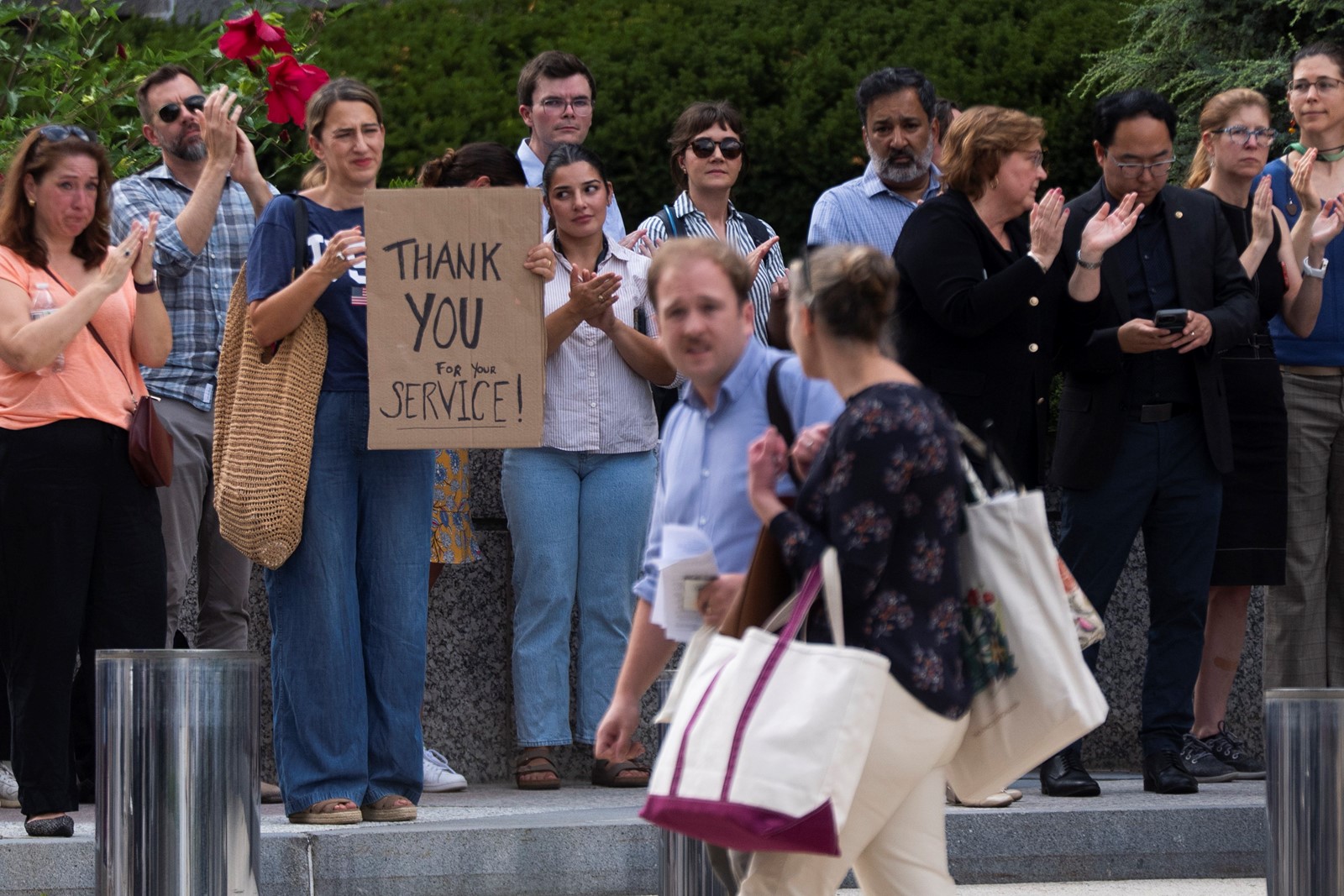
WASHINGTON — One employee coordinated intelligence activities. Another worked to leverage U.S. energy interests abroad. And a third was an expert on strategic competition with China.
They are just some of the more than 1,300 State Department employees fired last week, eliminating hundreds of years of institutional knowledge and experience.
The move has stunned America’s diplomatic workforce, not only as their careers abruptly end but as they wonder who — if anyone — will fill in on what they call critical work to keep the U.S. safe and competitive on the world stage.
Many of the positions and offices “abolished” Friday under Secretary of State Marco Rubio’s dramatic reorganization plan overlap with priorities President Donald Trump has laid out for his second term, such as combating visa fraud and countering China. Other cuts could have wide impact on everyday life, including processing Americans’ passport applications.
Trump administration officials have defended the mass dismissals, saying they are overdue and necessary to make the department leaner and more efficient.
Where cuts hit
Among the employees laid off are more than 100 people who worked in the Bureau of Consular Affairs, which is self-funded from passport and visa fees.
That includes half of a team that investigated passport fraud and 23 people who oversaw contracts to provide American citizen services, including processing passport applications, in the U.S. and abroad, according to a list compiled by current and former foreign service officers and sent to Congress this week.
Others fired included experts responsible for dealing with visa fraud and money laundering in Russia and Eastern Europe as well as transnational criminal organizations and migrant worker visa fraud in Mexico and Central America.
A small team that had worked on multilateral engagements in the Bureau of East Asian and Pacific Affairs, including supporting Rubio’s trip to Malaysia last week, also were fired as Rubio was flying back to Washington from Kuala Lumpur, according to the list.
A handful of employees said their small office was eliminated even though it was doing work on immigration that the administration had deemed a priority. They thought their jobs were safe, and several were on vacation when the notices started rolling in.
“It came out of the blue, and there’s no one left to do what we were doing,” said one of the laid-off employees, who has more than 30 years of experience.
Workers speak out
In interviews with The Associated Press, more than half a dozen employees who got notice to clear out their desks described their work as crucial. For some, the government spent tens of thousands of dollars investing in their language skills, providing training or moving them and their families from one overseas posting to another.
They spoke on the condition of anonymity, fearing reprisal from the agency where they remain on the payroll until September.
“The American people aren’t getting all of the facts about what the department has done,” said a civil service officer working in intelligence who was fired last week.
The person said the intelligence work their team had been doing has now been transferred to an office that doesn’t have the capacity to handle the sensitive material and coordination required.
One senior official, who was fired after 26 years in the foreign service, said their office was working to maintain U.S. energy dominance abroad.
Rubio testified at his confirmation hearing earlier this year that energy would be “a centerpiece of our foreign policy.”
“The fact that they got rid of all the energy experts who would promote oil and gas sales overseas clearly undermines everything that they’re saying,” the official said.
At least seven intelligence analysts who specialized in Russia and Ukraine issues, as well as five fluent Chinese speakers, also were let go, according to two of the employees.
A staffer focused on strategic competition with China said the decision to lay off staff who had institutional and cultural knowledge of China and spoke the language could leave the U.S. exposed.
He added that Rubio had recently labeled the country as “the most significant long-term risk to the United States.”


 PREVIOUS ARTICLE
PREVIOUS ARTICLE
